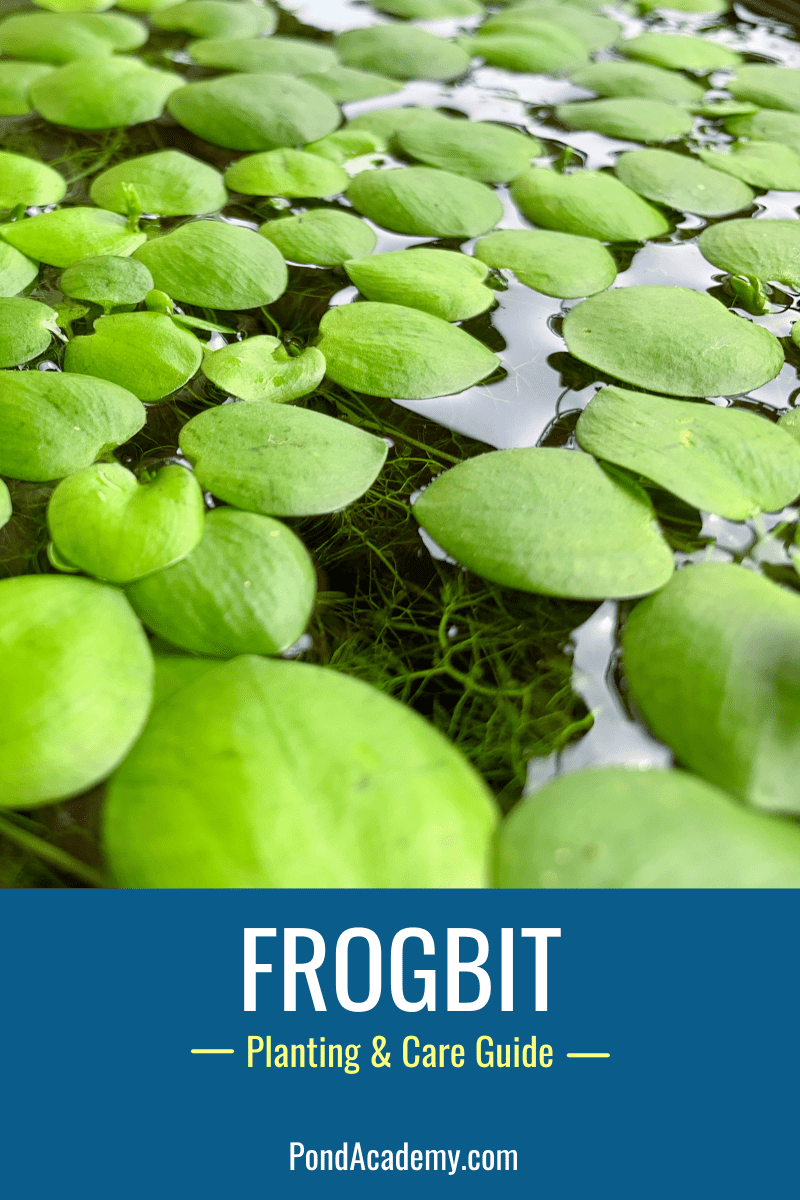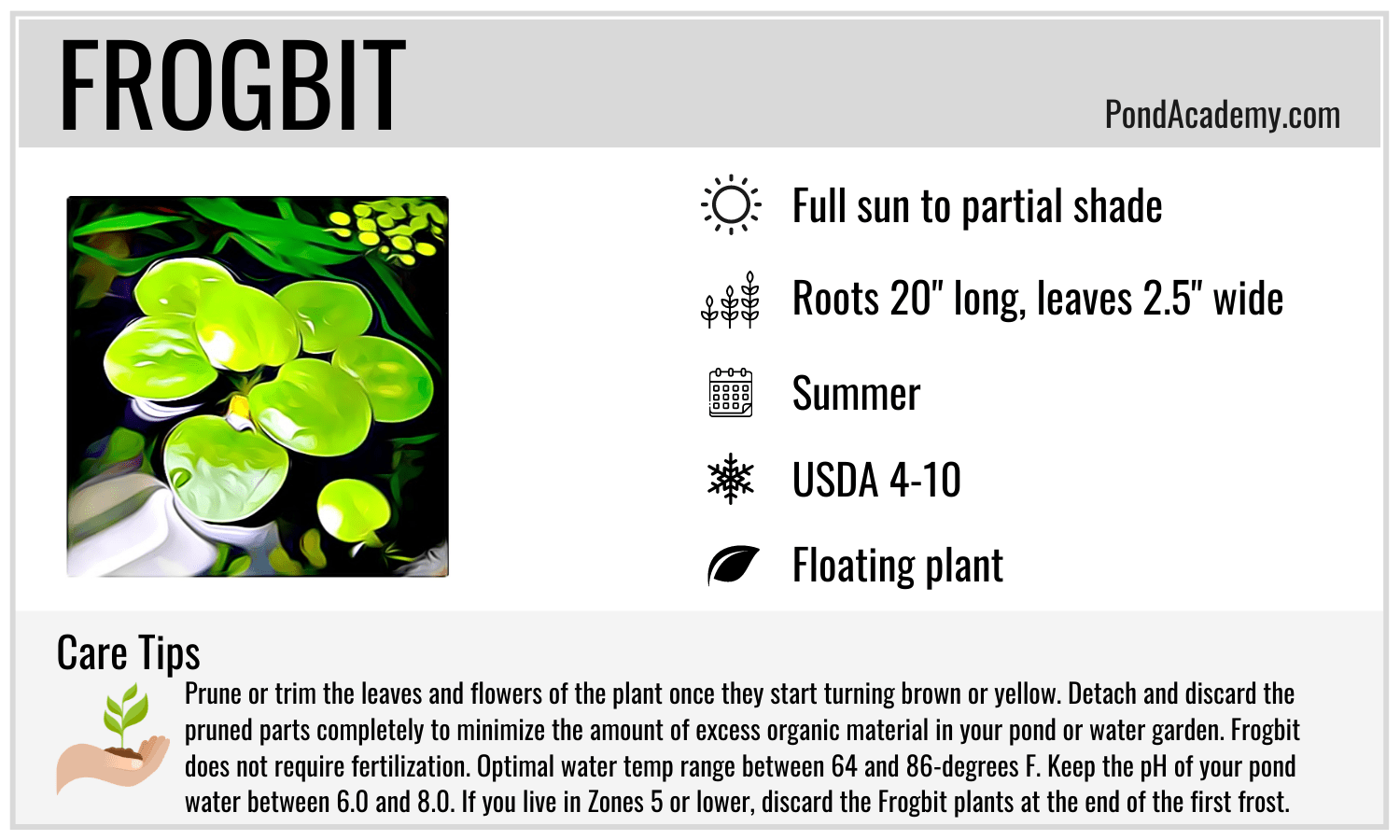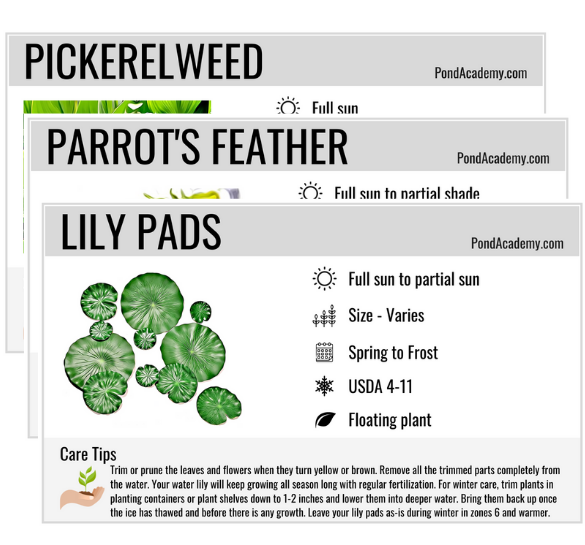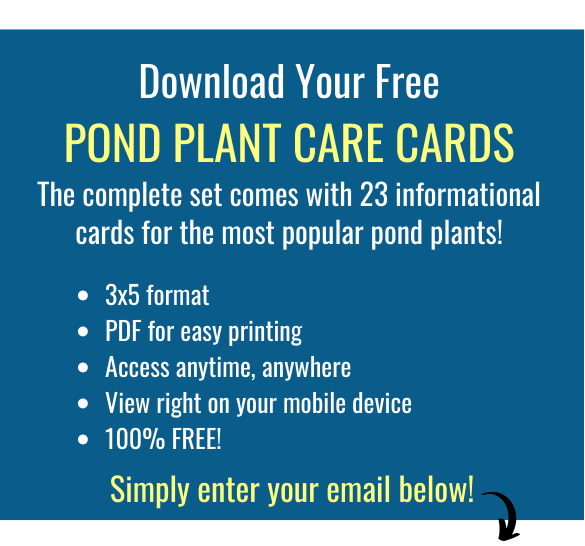Frogbit Pond Plant - Care & Grow Guide
Pond Academy is reader-supported. Buying through links on our site may earn us an affiliate commission. As an Amazon Associate I earn from qualifying purchases.

Frogbit or Limnobium laevigatum is an aquatic plant well-known for its green, fleshy, heart-shaped leaves, similar to a miniature water lily. It has beautiful, small white flowers that bloom in summer.
Since Frogbit is also a floating plant, you can use it as shade from the sun (to inhibit algae growth) or as protection for your pond fish from predators. The many roots also make it suitable for added filtration.
It is important to note, however, that Frogbit is classified as an invasive species in some states, so you may have to check local regulations before planting. You should always keep the plants away from public lakes or waterways in any state.
Common Names
Frogbit, Frog bit, Frog's bit, West Indian spongeplant, South American spongeplant, Amazon frogbit, Smooth frogbit, American frogbit (which is actually Limnobium spongia)
Plant Type
Floating plant
Light Requirements
Full sun to partial shade
Plant Hardiness Zones
USDA 4-10
Bloom
Summer
Grow Up To
Roots up to 20 inches long, leaves up to 2.5 inches wide
Flower Color
White
How to Plant Frogbit in a Pond
You can plant the Frogbit directly on the surface of your pond or aquarium. Simply drop the plant gently onto the water's surface, with the roots pointing down towards the bottom of the water.
The plant will either continue to be free-floating or take root if a substrate is present.
Get Our Best Pond Tips Sent to Your Inbox for Free!
Join thousands of others and learn from our decades of pond building and maintenance experience! Your pond will thank you!
By subscribing you agree to receive emails from PondAcademy.com. We will always respect your privacy and you can unsubscribe at any time.
Frogbit Care Guide
You should always prune or trim the leaves and flowers of the Frogbit plant once they start turning brown or yellow. Detach and discard the pruned parts completely to minimize the amount of excess organic material in your pond or water garden.
Frogbit Care Tips
- Frogbit does not require fertilization – they derive the needed nutrients from your pond water.
- Keep the temperature of your pond water between 64 and 86-degrees F. This is the optimal temperature range for healthy Frogbit plants. You can monitor the temperature of the water with a pond thermometer.
- Keep the pH of your pond water between 6.0 and 8.0. You can monitor the pond pH level using a water testing kit or adjust the pH levels using water additives when required.
- If you live in Zones 5 or lower, discard the Frogbit plants at the end of the first frost.
Frogbit Care Card
Download our free printable care card for the Frogbit plant! Click the care card below and save the PDF file to your computer. You can easily print off the 3x5 care card or access it right from your phone. Get all the important information you need to keep your Frogbit plants healthy and happy!
Plus, we provide a blank card for you to print and fill out yourself. Print it as many times as you like to create cards for all your plants!

Pond Plant Care Card Set







